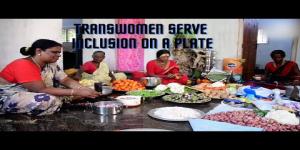Child marriages in South Asia: Gross violation of girl rights that needs urgent regional attention
The persistence of child marriage in South Asia indicates the widespread failure of governments to address one of the most critical human rights issues. Effective legal remedies and ensuring accountability for those complicit in such crimes can be the panacea for such social ills.

Child marriage, one of the gravest human rights violations, is vigorously established in the global development agenda through its inclusion in Sustainable Development Goal Target 5.3 which aims to eliminate the practice by 2030. However, the ‘polycrisis’ of the present world has elevated its risk manifold the COVID-19 pandemic, climate disasters and armed conflicts have worked in unison to bring back the waning problem into the spotlight again. This steep rise is most evident and its effects are most protracted in South Asia. New estimates by UNICEF show South Asia is home to the highest number of child brides in the world.
Definition and proliferation
Child marriage is defined by the United Nations and other international organizations as any formal marriage or informal union between a child under the age of 18 with an adult or another child. According to UN, there are 290 million child brides in the region accounting for 45 per cent of the global total. Sixteen locations in Bangladesh, India, and Nepal found that many parents in these regions saw marriage as the best option for their daughters. Though few countries have seen a lower prevalence of child marriages like the Maldives, it’s still considerably high in Bangladesh, Afghanistan, Pakistan and India. Child marriage has spiked in all communities in Sri Lanka too. According to data obtained from there, there were 2200 marriages of Sinhalese children under 15, 372 marriages of Tamil children under 15 and 471 marriages involving Muslim children under 15 (in 2016 Demographic & Health Survey, Sri Lanka).
No less unflattering is the situation in Pakistan. According to UNICEF, it has 19 million child brides. Tahira Habib from the Lahore-based Human Rights Commission of Pakistan told DW there had been 99 reported cases of underage marriages in Pakistan in 2022. Many cases go unreported due to the stigma attached to the practice. (‘Why underage marriages are still prevalent in Pakistan’, Khan, S, DW, 27 November 2022. Source: https://www.dw.com/en/why-underage-marriages-are-still-prevalent-in-pakistan/a-63860202)
Notwithstanding creditable progress, the picture is still very dismal in many South Asian countries. Though, child marriages are often not only gender-driven, mostly girls are affected. Much more needs to be done to stop this malaise. Yet as UNICEF analysis highlights, current reductions in child marriages are too slow, pushing achievement of SDG targets off by at least 300 years. Noala Skinner, UNICEF Regional Director for South Asia said, “The fact is that South Asia has the highest child marriage burden is tragic. Child marriage locks girls out of learning, puts their health and well-being at risk and compromises their future.” (‘Child Marriage: Breaking the Chains of Tradition’, Wiratunga S, Groundviews, 7 March 2023. Source: https://groundviews.org/2023/07/03/child-marriage-breaking-the-chains-of-tradition/)
Damaging consequences for girls
As dreams of vulnerable girls get buried, the detrimental effects of child marriage are variegated. It kills more than 60 girls a day globally and 6 girls in South Asia. Early marriage leads to forced sex, malnutrition and early, unplanned and frequent pregnancies, pre-mature childbirth-related deaths and increased risk of violence. Girls are led to this moribund state denying them a happy and carefree childhood which is a denial of the basic right to life and liberty. Child marriage is the deadliest form of gender-based and sexual violence.
Domestic violence is another significant consequence of child marriage. Heath risks are immense as they are unable to negotiate safe sexual practices and, in most cases, have no voice or agency in exercising their reproductive rights. Therefore, they are at higher risk of sexually transmitted infections. Their path to get a proper education is obfuscated and their future gets compromised. Families are under diverse pressure to marry off their daughters. Sometimes to reduce household expenditures in times of economic crisis at other times, to seek refuge for their girls in precarious conditions like floods, cyclones and droughts.
Solution to the scourge
The persistence of child marriage in South Asia indicates the widespread failure of governments to address one of the most critical human rights issues. Effective legal remedies and ensuring accountability for those complicit in such crimes can be the panacea for such social ills. The risks are heightened and progress undermined in conflict zones or humanitarian crises, where there is a breach of responsibilities on the part of families who surrender to precarity for survival. Ending child marriage entails enacting macroeconomic and social policies that stimulate societal transformations and advance gender equality. Action, awareness and commitment will determine results.
Supporting girls’ rights and their meaningful participation in public life is required. Bjorn Anderson, Asia Pacific regional director of the United Nations Population Fund came up with mitigating this burning issue through his words, “We must do more and strengthen partnerships to empower girls through education, including comprehensive sexuality education, and equipping them with skills, while supporting communities to come together to end this deeply rooted practice.” (‘South Asia has world’s highest number of child brides, says U.N., Aljazeera, 20 April, 2023. Source: https://www.aljazeera.com/news/2023/4/20/south-asia-has-worlds-highest-number-of-child-brides-says-un#:~:text=There%20are%20290%20million%20child,the%20global%20total%2C%20UNICEF%20says
(The writer, whose research interests include human rights and gender inequity, particularly in South Asia, is Assistant Professor, Department of Political Science, Jangipur College, Kalyani University, West Bengal. Views are personal. She can be reached at koyelbasu1979@gmail.com.)
blogger, and I was curious about your situation; many of us have developed
some nice practices and we are looking to trade strategies
with others, please shoot me an e-mail if interested.














Post a Comment